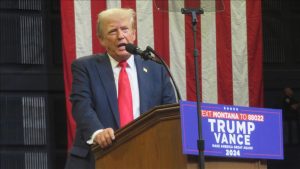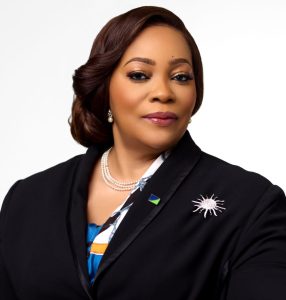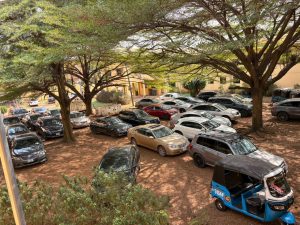Federal Government partners with Germany and UNODC to stop wildlife crime.
4 min read
Federal Government partners with Germany and UNODC to stop wildlife crime.
By Naomisophyblog
🌿 Ruzu Non-Alcoholic Herbal Bitters
Ruzu Non-Alcoholic Herbal Bitters is a natural health supplement specially formulated to:
- ✅ Promote general wellness
- ✅ Detoxify the body
- ✅ Support the treatment of various ailments
Made from a powerful blend of 100% organic and medicinal herbs, Ruzu is completely alcohol-free, making it ideal for:
- 👪 All age groups
- 🌱 Health-conscious individuals
- 🌿 Anyone seeking non-alcoholic herbal remedies
Whether you're looking to boost your vitality, cleanse your system, or support healing the natural way, Ruzu Bitters offers a trusted herbal solution.
12 August 2020: In spite of efforts by the National Environmental Standards and Regulations Enforcement Agency (NESREA), the Enforcement Authority responsible for the protection of endangered species of wildlife, in recent years, Nigeria has become a primary transit hub for several illicit wildlife and forest products, in particular for the global illegal pangolin trade, sourced primarily from Central Africa. UNODC’s recently launched World Wildlife Crime Report 2020 found that in 2019 alone, at least 51 tons of pangolin scales seized globally originated from Nigerian ports compared to only 2 tons in 2015. Indeed, more than half of all seizures of pangolin scales worldwide could be traced back to Nigeria in 2019.
Moreover, from around 2011, great volumes of rosewood, locally known as “kosso”, were exported from Nigeria to Asia. In October 2018, the CITES Standing Committee recommended that parties suspend commercial trade in kosso from Nigeria until the country carries out a non-detriment findings assessment for trade in the species.
Data further suggest an increasing role of Nigeria in the illicit ivory trade. Despite a global decline in trafficking in ivory since 2011, Nigeria has been identified in a growing number of incidents as part of the illegal trade chain, with 5,629 kg of ivory being seized in 2009-2011, compared to 11,769 kg in the period 2012-2014, to 12,211 kg in the period 2015-2017.
The Nigerian Government must be commended for its political will towards tackling wildlife crime. The National Environmental Standards and Regulations Enforcement Agency (NESREA), the Enforcement Authority responsible for the protection of endangered species of wildlife, has made efforts in resolving some of the regulatory and policy challenges confronting wildlife crime in the country, such as adopting the Nigerian Endangered Species (Control of International Trade and Traffic) Act of 2004 and its 2016 amendment which meet the requirements to successfully implement CITES in the country.
The Government is also currently reviewing its National Ivory Action Plan (NIAP) in line with CITES recommendations. The Government also recently requested support from the International Consortium on Combating Wildlife Crime (ICCWC) to conduct a comprehensive assessment of the national preventive and criminal justice response to wildlife and forest crime, as well as a corruption risk assessment for these sectors that will be conducted by UNODC.
To comprehensively tackle wildlife and forest crime, the Federal Government, the Government of Germany and UNODC came together on World Elephant Day to announce a new partnership aimed to strengthen Nigeria’s response to the trafficking of wildlife and forestry products. The partnership includes the Federal Ministry of Environment, the Nigeria Customs Service, NESREA, various law enforcement agencies and civil society organizations to improve data-collection capacity and understanding of the driving factors of these trends, enhance the relevant policy and legal framework, strengthen law enforcement and border control agencies in their capabilities to exchange intelligence on shipments, disrupt trafficking flows and networks, cooperate internationally with their counterparts in source and destination countries, and to investigate and prosecute wildlife and forest crime offences.
Dr. Oliver Stolpe, UNODC Representative in Nigeria, stressed in his remarks the threat that wildlife trafficking poses to nature and the biodiversity of our planet. He observed that when wild animals are poached from their natural habitat, butchered and sold illegally, the potential for transmission of zoonotic diseases, such as COVID-19, from animals to humans – is increased.
Read Also:Police Debunks Report Fulani Herdsmen Killed Anambra Man, Say Investigation Shows His Friends Culpability.
H.E. Mrs. Birgitt Ory, Ambassador of Germany to Nigeria, remarking on the launch of the project stated: “Together with UNODC we seek to support the Nigerian government in the important fight against trafficking in illicit wildlife products. We have a shared interest in preserving nature’s riches for future generations”.
In his goodwill message, Prof. Aliyu Jauro, Director General/CEO of the National Environmental Standards and Regulations Enforcement Agency (NESREA), expressed optimism that “the successful implementation of the project will reduce the illicit trade in endangered species of wildlife to the barest minimum and Nigeria will regain her good image in the CITES community.”
The Honourable Minister of Environment, Dr. Mohammad Mahmood Abubakar, represented by the Acting Permanent Secretary, Dr. Bolatito Obisesan acknowledged in a keynote remark that the project “will further add value to government’s effort in combating illicit activities that are detrimental to wildlife conservation in Nigeria.”
While thanking the Government of Germany and UNODC for initiating the project, the Minister gave assurance of “undoubtful continuous support of the project for the period it will last for Nigeria Government.”







